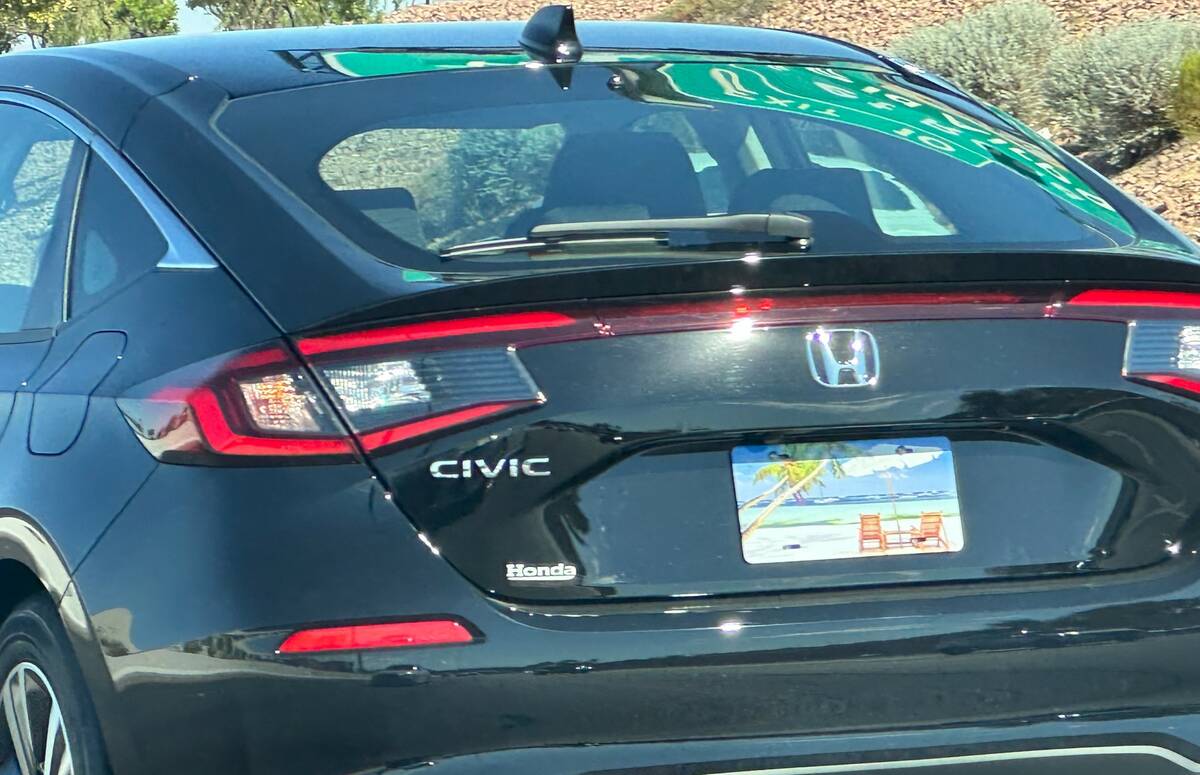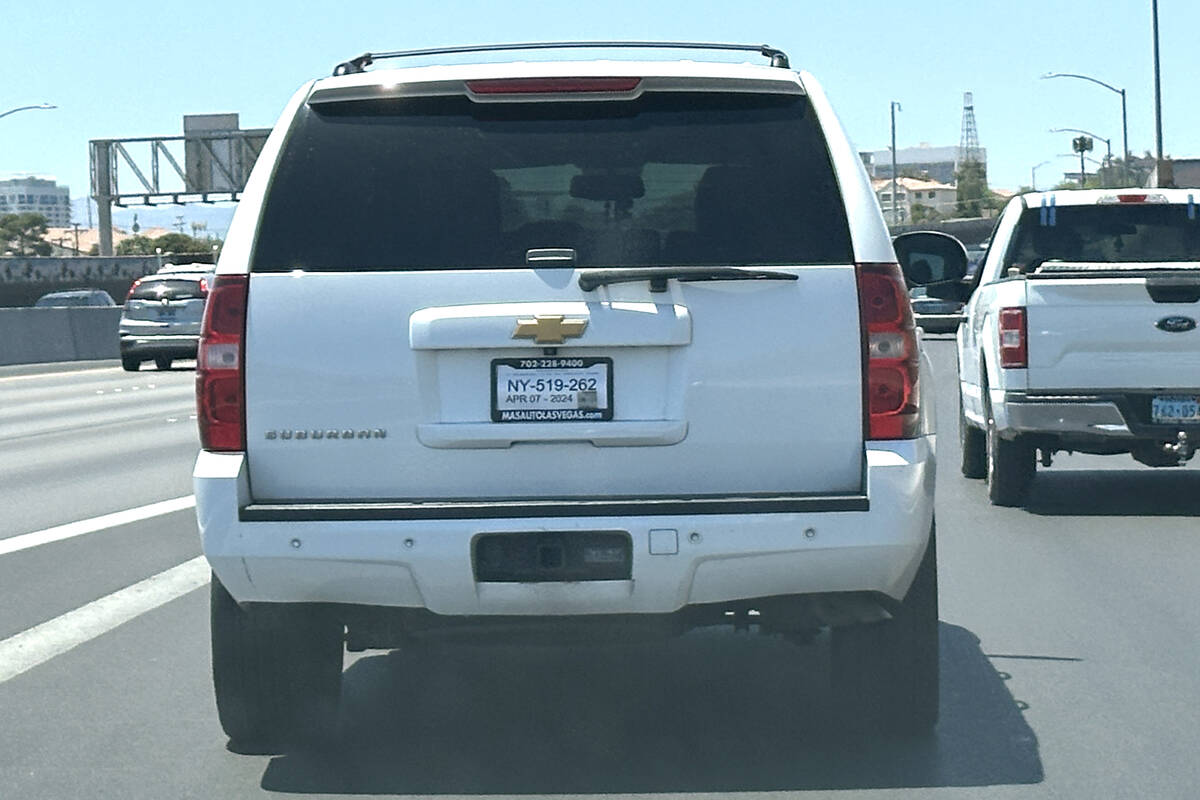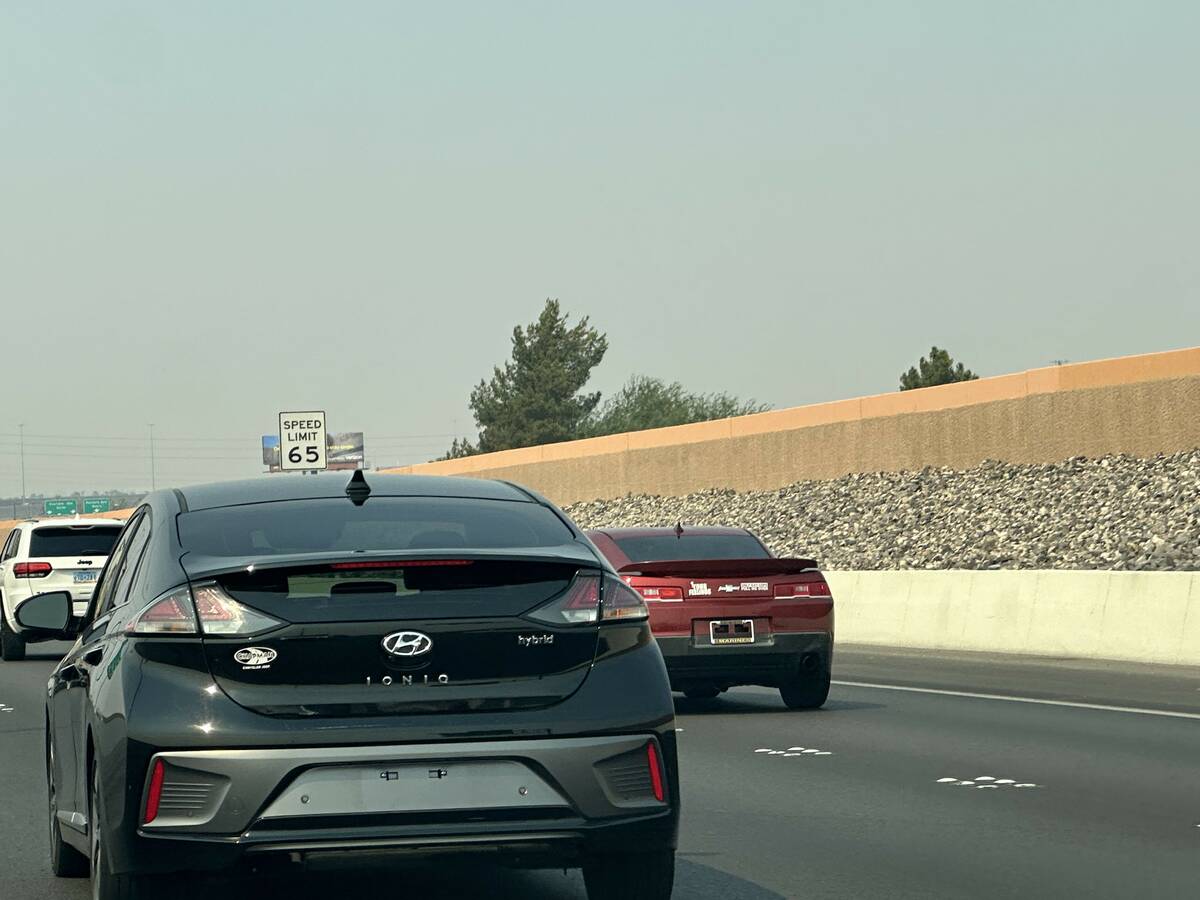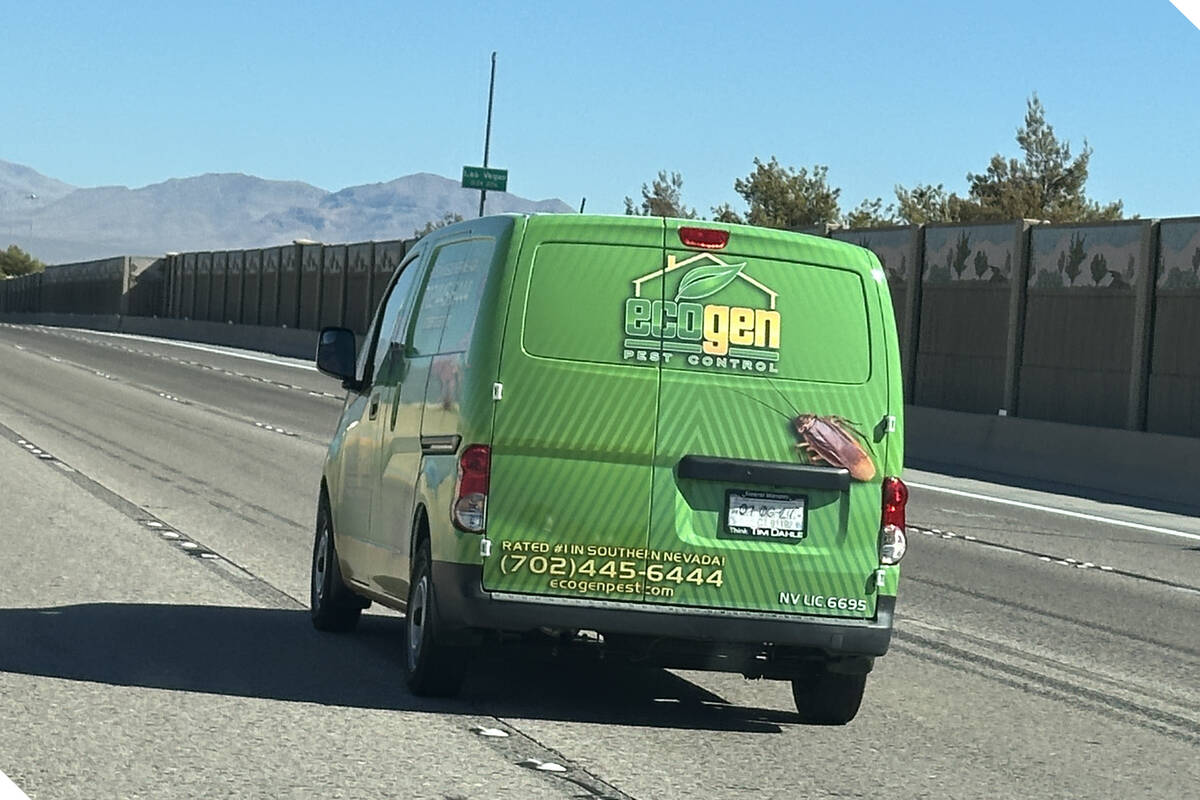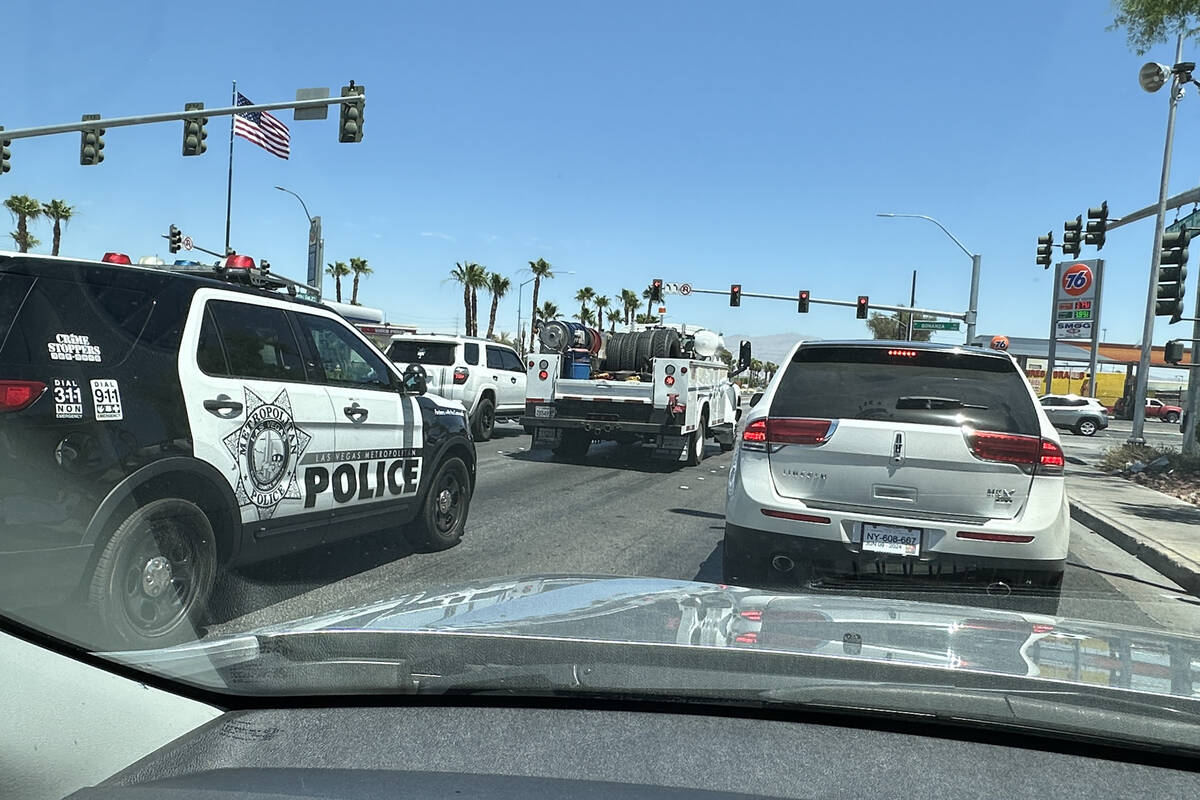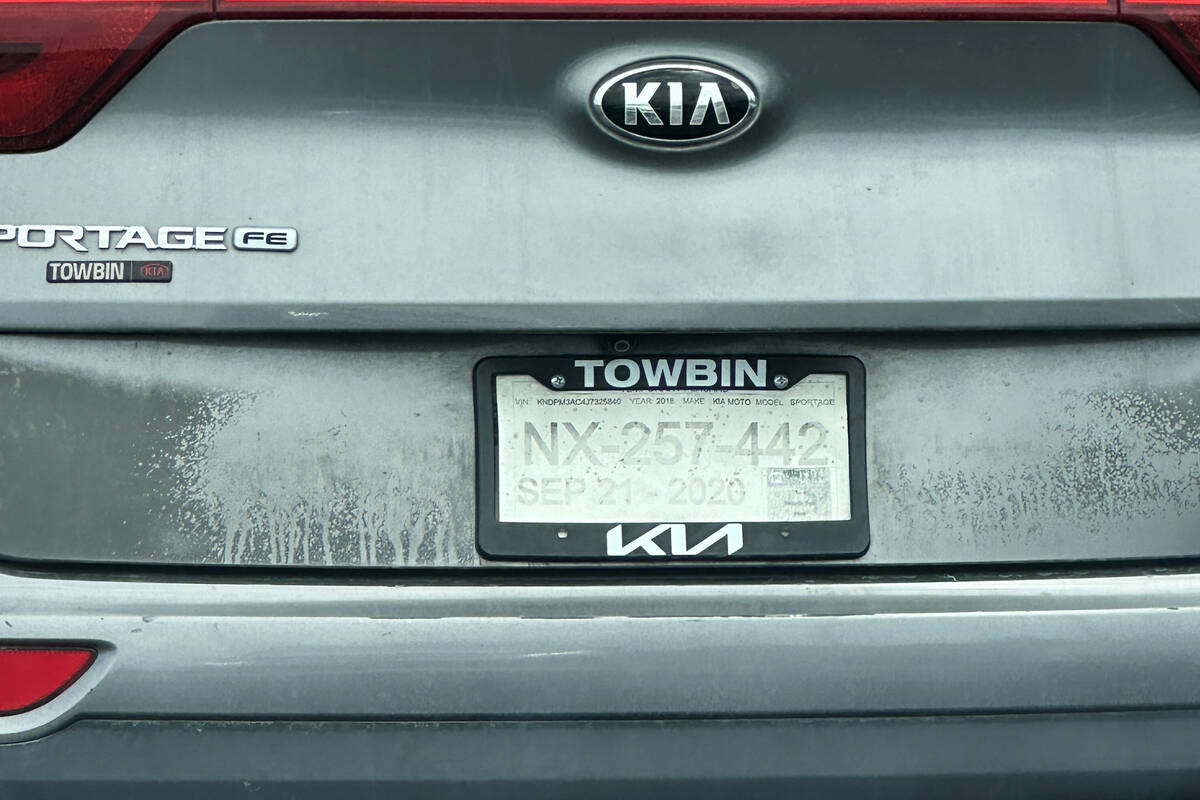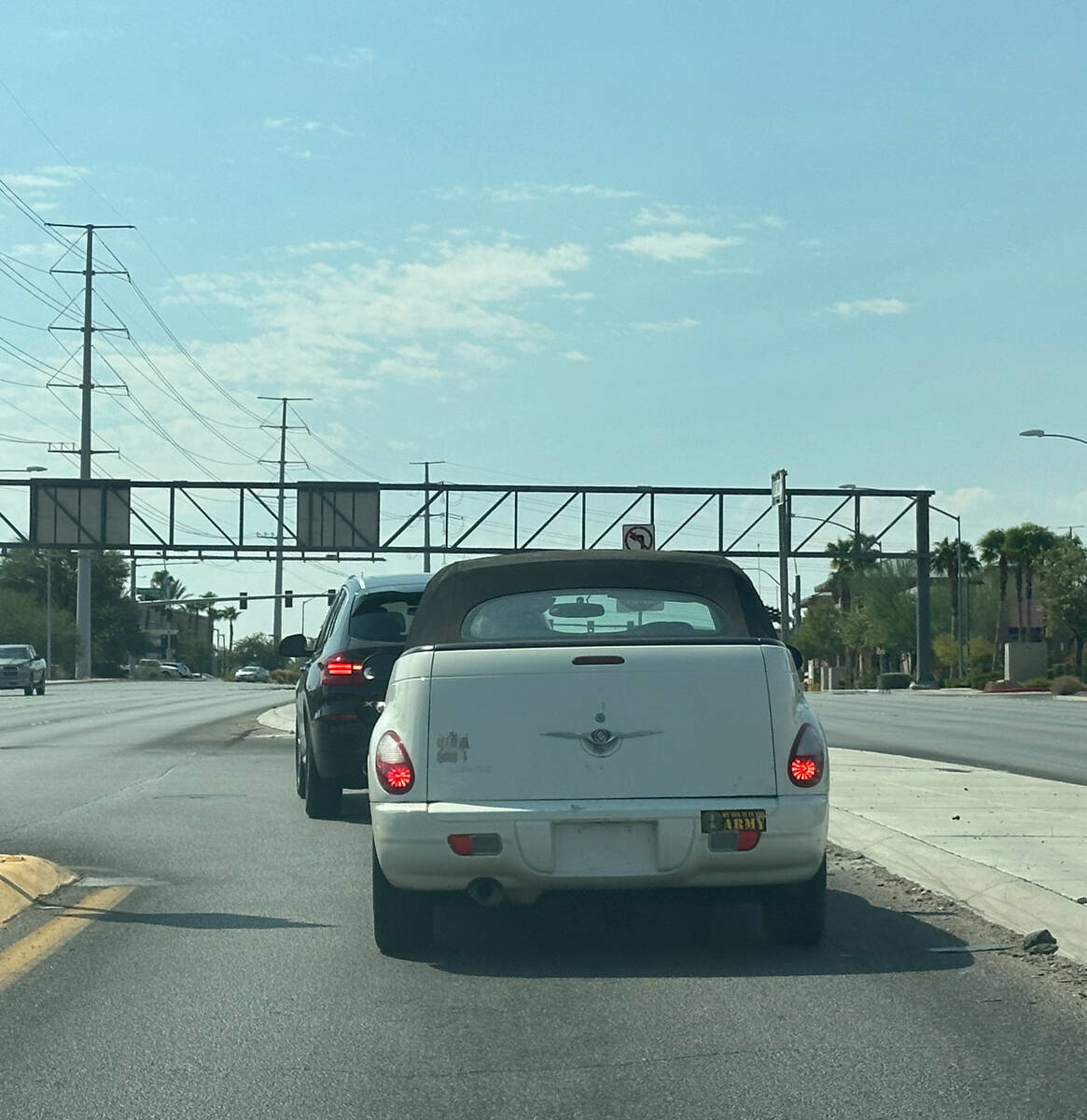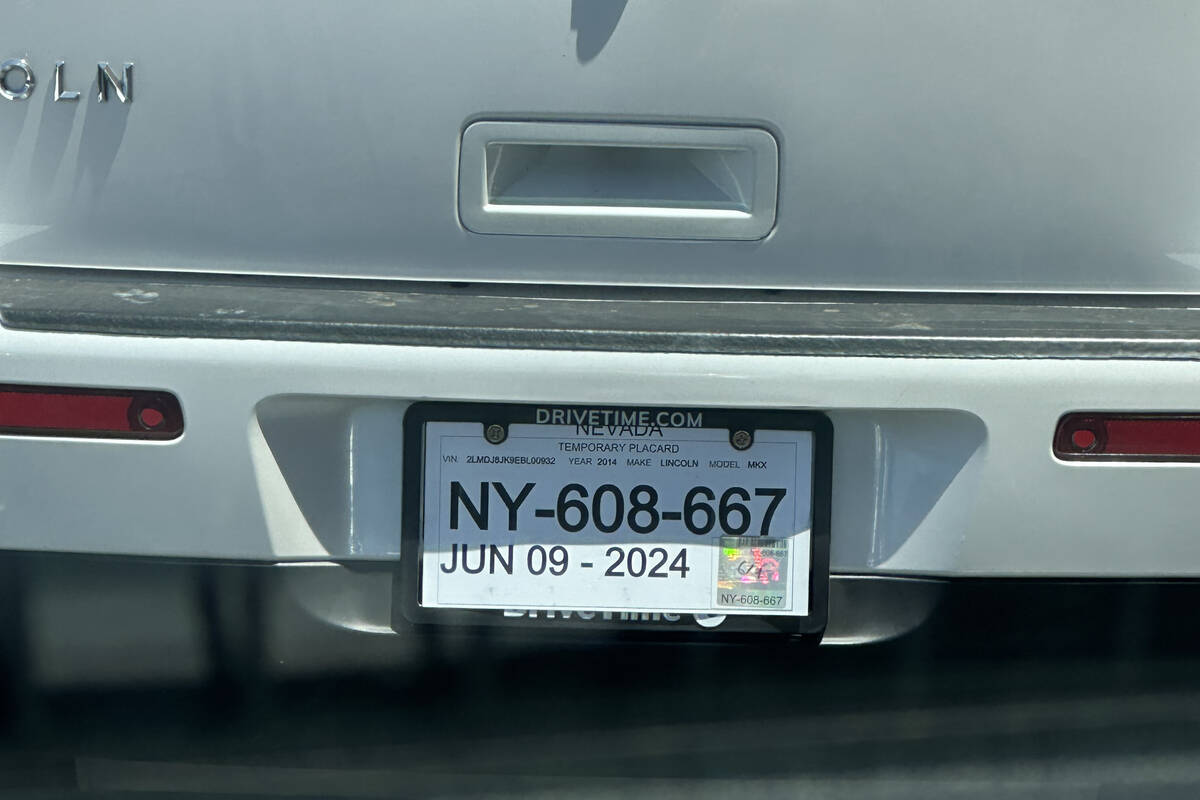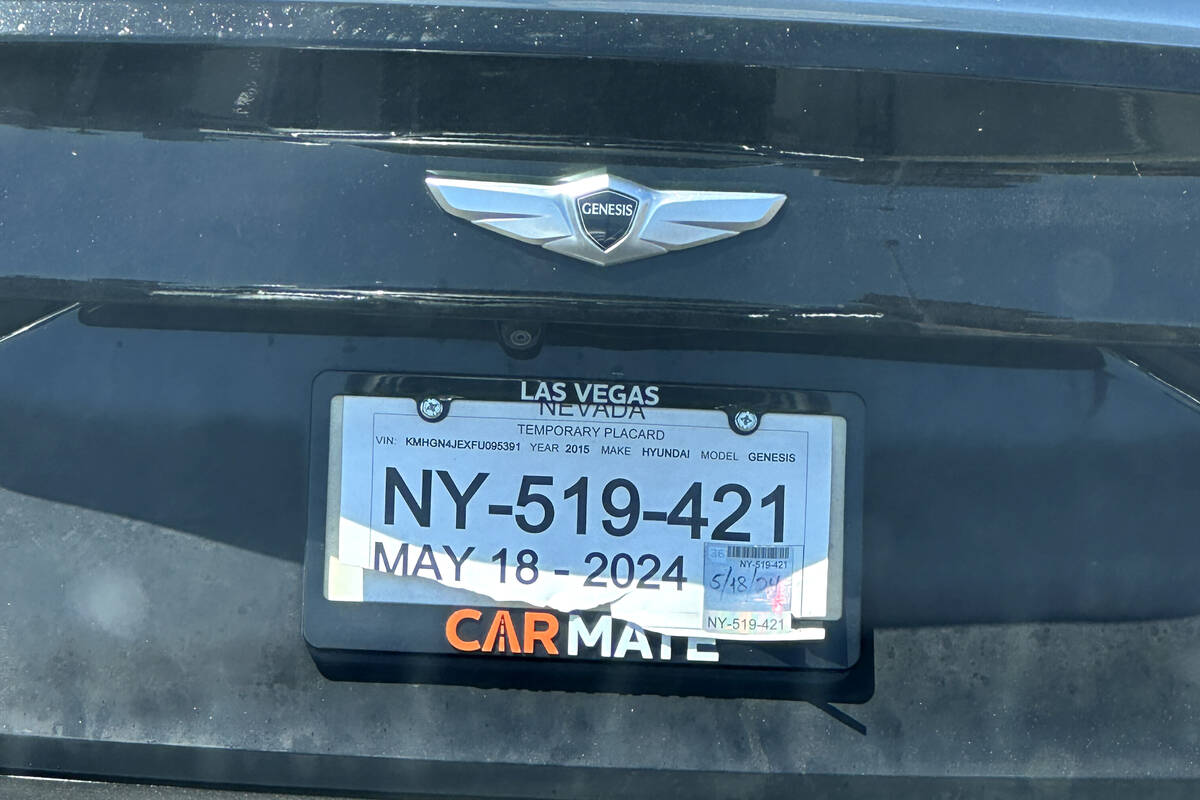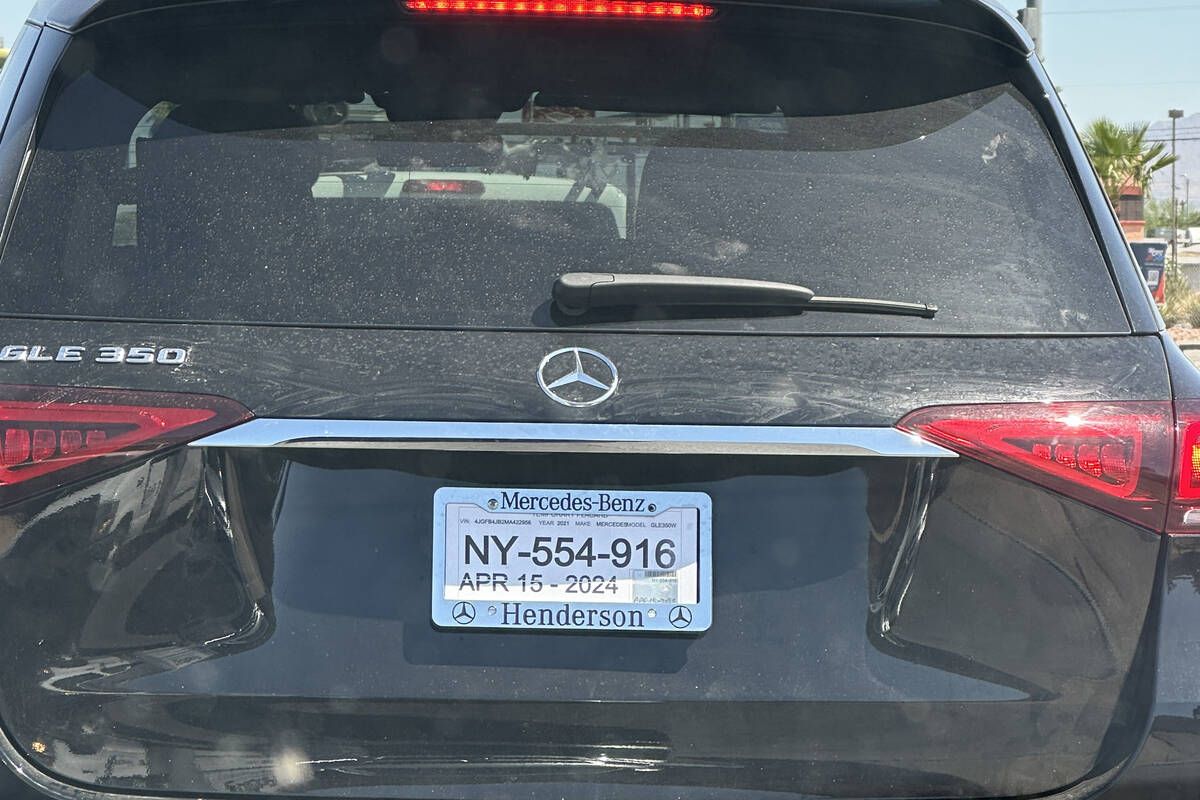What’s behind the rise in vehicles with expired temporary license plates on Nevada roads?
Although there’s no data tracking how many Nevada vehicles have expired temporary license plate tags, the Department of Motor Vehicles acknowledges a noticeable uptick.
A 78-day shutdown of DMV offices across the state, leading to a backlog of transactions and long wait times to nab an appointment in several following months, played a role in the growing problem, according to JD Decker, chief of compliance enforcement for the DMV.
“What we’re seeing is there is no real reason not to come into the DMV at this point, because post-COVID there were lines and waits and all kinds of stuff,” he said. “People were just kind of doing their own thing. We think some of that may be carried over and people aren’t taking care of that. So we have a lot of people out there with temp tags.”
Vehicles in the Las Vegas Valley can be seen bearing expired temporary paper tags, expired registration tags on license plates, counterfeit temporary tags, no plates at all and some plates with pictures where the plate should go.
Other factors besides the COVID effect also have played a role in the increase of nonregistered vehicles and vehicles with expired registrations in the state.
Keeping track
A major issue is that the DMV can’t track who might have an expired temporary paper license plate because that would basically entail motorists tattling on themselves as long as when they drive they aren’t cited by police.
“We don’t track how many vehicles are on the road that are not registered, since we don’t have the data on them,” Decker said.
In the case of private vehicle sales, a law was passed last year that gives buyers a three-day time frame to get their newly purchased vehicle registered or to obtain temporary tags through the DMV. Vehicles purchased via a dealership receive temporary tags that are valid for 30 days.
Not only are cars with expired legitimate dealership tags out on the road, but an increased number of counterfeit dealership temporary tags also have been noted, Decker said. They’re being sold online through social media, with the highest Decker knows selling for $120, for a dealer temporary tag from out of state.
“The reason they do out of state is because we prevent fraud from occurring on the in-state one’s pretty robustly and also they’re more recognizable to Nevada law enforcement,” he said. “It is interesting to me that people will pay so much money for these. When I pull people over and confiscate them myself, I always tell them that this piece of paper is as legal as if you had written it out on a cocktail napkin because it’s fraudulent.”
Lack of enforcement
Regardless of why a motorist doesn’t have proper in-state registration and still drives on Nevada roads, the problem has created an enforcement issue, Decker said.
“We have to be able to pull people over and check on the side of the road and cite people for not having a valid registration,” Decker said. “There’s some staffing problems with law enforcement in Nevada.”
In addition to staffing limitations, the Nevada Highway Patrol and various police departments in the valley have higher priorities than patrolling the streets for expired or invalid registrations.
“Metro is taking radio calls all day and their officers are rushing from one call to the next,” Decker said. “Then highway patrol is rushing from one accident to the next. It leaves limited ability to enforce those kinds of things.”
The DMV has patrol units enforcing the issue, but its staff is much smaller than those of other area law enforcement departments.
“We don’t have the number of officers to enforce it solely on our own,” Decker said. “We think it’s a priority because people that are driving around with an illegal or expired registration probably don’t have any insurance. And that is a danger to people.”
Often when a driver with a faulty vehicle registration is pulled over, that person also has a suspended or invalid driver’s license.
“That’s maybe one of the underlying reasons why they’re running a counterfeit temp tag or are not actually registering their vehicles,” Decker said.
Financial issues
Some residents buy a car from a dealer or private party and don’t end up registering their vehicle because of financial constraints. After spending thousands on a vehicle, paying hundreds more for the registration costs aren’t in some motorist’s budgets.
“People buy the car and say they didn’t have the money for the DMV,” Decker said. “Well, then you probably didn’t have the money for the car.”
If someone buys a car from a dealer, receives a temporary registration and then allows the expiration of the 30-day grace period to obtain a license plate, there are fees associated with that.
When the late fees begin to rack up, motorists then are required to go into a DMV office to register their vehicle and pay the associated late fees.
“Then it becomes a much bigger thing because it’s going to cost more and you have to make an appointment to get into a DMV office,” Decker said.
Late fees vary person to person and depend on the manufacturer’s suggested retail price of the vehicle and the registration fee associated with that.
“It depends on the actual registration cost of the vehicle, based on the MSRP,” Decker said. “It’s a $6 per month late fee and a 10 percent penalty on the past-due governmental service tax.”
Are nonregistered vehicles impounded?
When a driver with an expired or no registration is pulled over, they won’t be towed solely for that infraction. It would take at least two or more issues for law enforcement to impound one’s vehicle.
“Most agencies use the two out of three rule,” Decker said. “Between a driver’s license, insurance and registration, if you don’t have two out of the three, your car is probably going to be impounded. Mostly what you see is people without insurance and registration.”
Although someone could obtain insurance on a vehicle without registering a vehicle, Decker said that when someone doesn’t have two of the three items required to drive, it’s usually no registration and insurance.
“So you have to impound, because you can’t really write them a ticket and let them drive off without insurance,” Decker said. “Insurance is a big factor. We do have people with suspended, expired or no license. If they have insurance and registration, we’re generally going to make them call a licensed driver to come get them, but we’re not going to take the car.”
What can be done to help?
The DMV isn’t looking to push for the passage of new legislation in relation to making stiffer penalties for nonregistered vehicles.
“Increasing fees wouldn’t necessarily correlate with motivating people to get in. It would make it harder for people to pay the costs,” Decker said.
But Decker does hope the continued digital transformation of the DMV and the multiyear rollout of making the majority of transactions available online, pushes some who might skip a required in-office visit more likely to register a new vehicle.
“I think that (digital transformation) is an effort that is going to have an impact down the road,” Decker said. “It’s a lot easier to go on your phone or computer and take care of your DMV transactions than it is to make an appointment and come in.”
Contact Mick Akers at makers@reviewjournal.com or 702-387-2920. Follow @mickakers on X.



